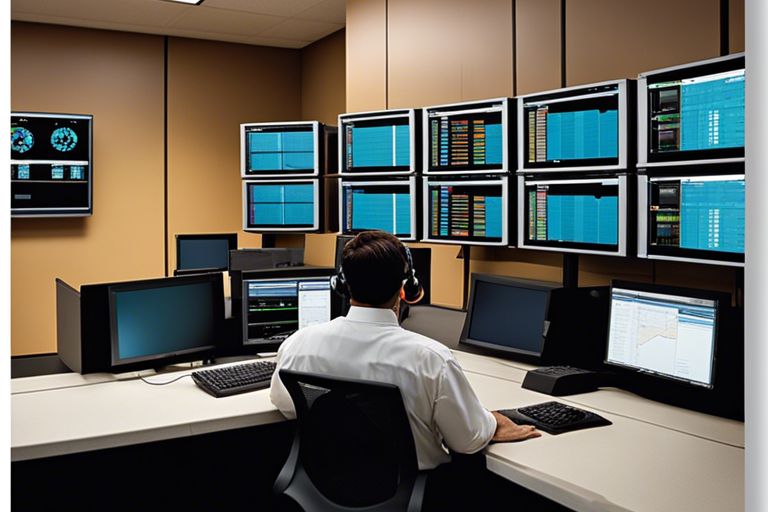Understanding the roles of dispatchers and operators is crucial in many industries, especially emergency services and transport. As a dispatcher, you are primarily responsible for coordinating communication, managing schedules, and allocating resources efficiently. In contrast, an operator focuses on directly handling operations, such as driving a vehicle or managing equipment. Each position is vital in maintaining safety and efficiency, making it important to grasp these distinctions for effective teamwork.
Understanding the Dispatcher
A dispatcher plays a crucial role in various industries, particularly transportation and logistics. They are responsible for coordinating the movement of vehicles and personnel, ensuring that operations run smoothly and efficiently. Your primary duties will include scheduling shifts, communicating with operators, and monitoring the status of your fleet or service vehicles to address issues promptly.
Role and Responsibilities
An effective dispatcher ensures that resources are allocated appropriately, facilitating timely deliveries and efficient service. This includes communicating with drivers, tracking their locations, and providing necessary support during operations. Your ability to respond quickly and make decisions can significantly impact safety and efficiency in emergencies.
Skills Required
Dispatcher roles demand unique skills to navigate the challenges of fast-paced environments. You must possess strong communication skills to relay information effectively between operators and clients. Additionally, organization and multitasking capabilities are crucial, as you will often handle multiple tasks simultaneously. Familiarity with dispatch software and geographical knowledge can enhance your effectiveness in this role.
It is crucial for you to develop problem-solving abilities, as unforeseen situations can arise at any moment. Being calm under pressure allows you to assess scenarios quickly and make sound decisions. Furthermore, attention to detail is paramount, as you need to monitor various aspects of operations, from vehicle maintenance to crew scheduling. Ultimately, having strong technical and interpersonal skills will contribute significantly to your success as a dispatcher.
Understanding the Operator
It is crucial to grasp the role of an operator when differentiating between these two critical functions in the business. An operator is primarily responsible for managing machinery or systems, ensuring they run efficiently and safely. This role often involves monitoring operations, conducting routine maintenance, and troubleshooting issues.
Role and Responsibilities
An operator’s responsibilities encompass tasks like overseeing the operation of machinery, maintaining safety standards, and adhering to protocols. Daily, you might check equipment, adjust controls, and collaborate with team members to optimize performance and mitigate risks.
Skills Required
An operator must possess a range of skills to perform their duties effectively. This includes mechanical aptitude, problem-solving capabilities, and strong attention to detail. Moreover, communication skills are crucial for coordinating with team members and supervisors to ensure seamless operations.
Plus, as an operator, you should continuously develop your knowledge of industry-specific machinery and safety regulations. Understanding potential hazards is vital in this role, enabling you to handle emergencies effectively and maintain a safe work environment. Your ability to stay calm under pressure and make informed decisions will significantly impact operational efficiency.
Key Differences Between Dispatcher and Operator
You might wonder how a dispatcher differs from an operator in a work setting. Understanding their roles is necessary to grasp the overall workflow and operational efficiency. This section will provide an overview of the key differences in workflow dynamics, communication methods, and decision-making processes.
Workflow Dynamics
Dynamics in the operational setting show a clear distinction between dispatchers and operators. While dispatchers coordinate and manage the flow of information and resources, operators focus primarily on executing tasks within their specific roles. This means that as a dispatcher, your job involves orchestrating multiple elements simultaneously, whereas operators focus on individual tasks.
Communication Methods
The communication methods employed by dispatchers and operators also vary significantly. Dispatchers frequently use digital systems for real-time updates, while operators rely on more direct communication. As a dispatcher, this means you will likely be using software and communication tools to ensure that all team members are well-informed and aligned.
Operator communication is more about receiving instructions and performing systematically, while dispatchers must communicate with multiple stakeholders simultaneously to ensure that resources and information flow smoothly.
Decision-Making Processes
Operator roles generally focus on immediate operational decisions, while dispatchers plan more strategically. As an operator, your decisions are often reactive—tied directly to the situation. Dispatchers, on the other hand, evaluate multiple scenarios and develop long-term strategies to optimize workflow and resource allocation.
Dispatchers’ decision-making methods involve analyzing data and predicting needs, while operators make decisions based on tactical execution. Knowing these differences is crucial to understanding how efficient operations thrive in a coordinated environment.
Summing up
The primary difference between a dispatcher and an operator is in their roles within a communication system. As a dispatcher, you coordinate and manage the flow of information, ensuring that the right resources are allocated efficiently. In contrast, as an operator, you focus more on handling and operating equipment or machinery. Understanding these distinctions can enhance your effectiveness in either role, allowing you to tailor your skills and responsibilities for optimal organizational performance.
Book Luxury Rides Today


